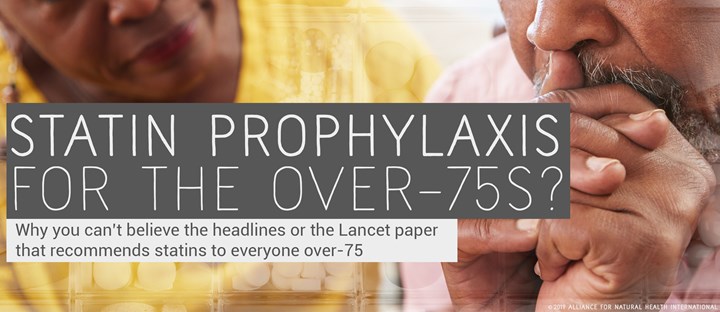Content Sections
By Yvonne England, ANH-Intl Practitioner Liaison
I couldn't believe my eyes when I came across a post on social media reporting on some very unscientific advice apparently coming from within a scientific journal! It seemed a Paediatrics article was “calling on health professionals to stop saying that breastfeeding is natural, arguing that doing so gives the impression that natural parenting practices are healthier”. This questionable advice, and the implication that natural behaviours are not beneficial, is causing outrage on social media, and being widely shared and commented on. Many have roundly dismissed it as utter codswallop —and not just those who support natural health and/or respect our connection with nature. The report said “The authors have started a public campaign to end the positive use of the word natural, claiming that it is associated with such "problematic" practices as home birth, homeschooling and the rejection of GMO foods, and that natural parenting movements are interfering with vaccination efforts". As a mother of two fully breastfed children, who is trained in nutritional therapy, I was curious to see the source Paediatrics article, and its justification. I found it lacking in both in substance and persuasive argument.
Casting doubt on ‘natural’
The Pediatrics article is entitled: “Unintended Consequences of Invoking the “Natural” in Breastfeeding Promotion”, and it’s authored by Jessica Matrucci, PhD, Anne Barnhill, PhD of the Department of Medical Ethics and Health Policy, Perelman School of Medicine, University of Pennsylvania in the USA.
The short piece begins by acknowledging the recommendation by “medical and public health organizations” that “mothers exclusively breastfeed for at least 6 months. This recommendation is based on evidence of health benefits for mothers and babies, as well as developmental benefits for babies” .
The authors then refer to an unspecified ‘spate of recent work’ that apparently ‘challenges’ the extent of the benefits of breastfeeding for mothers and babies, and claims evidence that even “ethical criticism of breastfeeding promotion as stigmatizing is also growing”.
Reference is made in the article to “a recent report by the Nuffield Council on Bioethics”, which examined the view that ‘natural’ approaches to health are better. The ‘disturbing’ (for them) finding of that analysis was “Views about what is natural or unnatural may influence the degree to which technologies aiming to treat disease, aid fertility or support food production, for example, are embraced or opposed”. The said report recommended that organisations representing scientists, government policy makers and the media should all avoid using the terms nature, natural and unnatural, unless they also clearly convey “the values or beliefs that underlie them”. Or perhaps it’s really saying be careful how you ‘sell’ new-to-nature ideas to those who prefer things the way nature intended!
Of concern that ‘natural’ means ‘anti-vax’
It’s certainly clear that the authors are particularly concerned that promoting breast feeding as ‘natural’ may affect vaccination rates. Promotion of such a concept may “bolster this belief that “natural” approaches are presumptively healthier”, which “may ultimately challenge public health’s aims in other contexts, particularly childhood vaccination”. The authors refer to a measles outbreak in 2014/2015, to specifically mention that that those who refuse vaccines, some of whom might believe they cause autism or contain “harmful levels of toxins and impurities”, are subject to condemnation. They argue that those who embrace ‘natural’ living, natural health, and who take responsibility for their health, “inhabit networks” of like-minded people, who are ‘skeptical’ of ‘institutional authority’, and are unfortunately apt to prefer ‘natural immunity’ to vaccination.
The authors observe that the distrust of the ‘unnatural’, ‘manufactured’ or ‘synthetic’ tends to include “rejection of genetically modified foods, a preference for organic over conventionally grown foods, and rejection of assisted reproductive technologies, as well as concerns over environmental toxins and water fluoridation”.
They stress their concern that “this view that “natural” is synonymous with “better” may work against specific public health goals”. Oh dear. Perhaps that's because public health goals go against nature.
The argument: breastfeeding does women no favours
The article questions the wisdom of the US Department of Health and Human Services for framing ‘natural’ breastfeeding as better than formula, and of the American Academy of Pediatrics for referring to breast milk as “the best and most natural food for infants”. Martucci has written a book called “Back to the Breast: Natural Motherhood and Breastfeeding in America”. Perhaps this is behind the authors’ suggestion that the ‘natural’ argument in these instances does women no favours in the context of women’s rights and the feminist movement, stating that it “may inadvertently endorse a controversial set of values about family life and gender roles (e.g. that women should be the primary caretakers), which would be ethically inappropriate”!
Clearly short on more persuasive arguments against the primordial and instinctive behavior of women towards their babies, the unconvincing article ends by harking back to the sad plight of pharma profits in the face of the human urge for the natural: “If breastfeeding promotion frames the “factory-made” option as risky or unhealthy, what should parents conclude when choosing between factory-made vaccines and boosting immunity “naturally”?”
This is what makes the article so unconvincing, and seems to put it neatly and squarely in the category of just another piece of propaganda to protect corporate profits.
It might be worth emailing the American Academy of Pediatrics, who publish the journal, and letting them know what we think of the article!
Read our earlier ANH Feature: What is ‘natural’? by Robert Verkerk PhD.








Comments
your voice counts
There are currently no comments on this post.
Your voice counts
We welcome your comments and are very interested in your point of view, but we ask that you keep them relevant to the article, that they be civil and without commercial links. All comments are moderated prior to being published. We reserve the right to edit or not publish comments that we consider abusive or offensive.
There is extra content here from a third party provider. You will be unable to see this content unless you agree to allow Content Cookies. Cookie Preferences